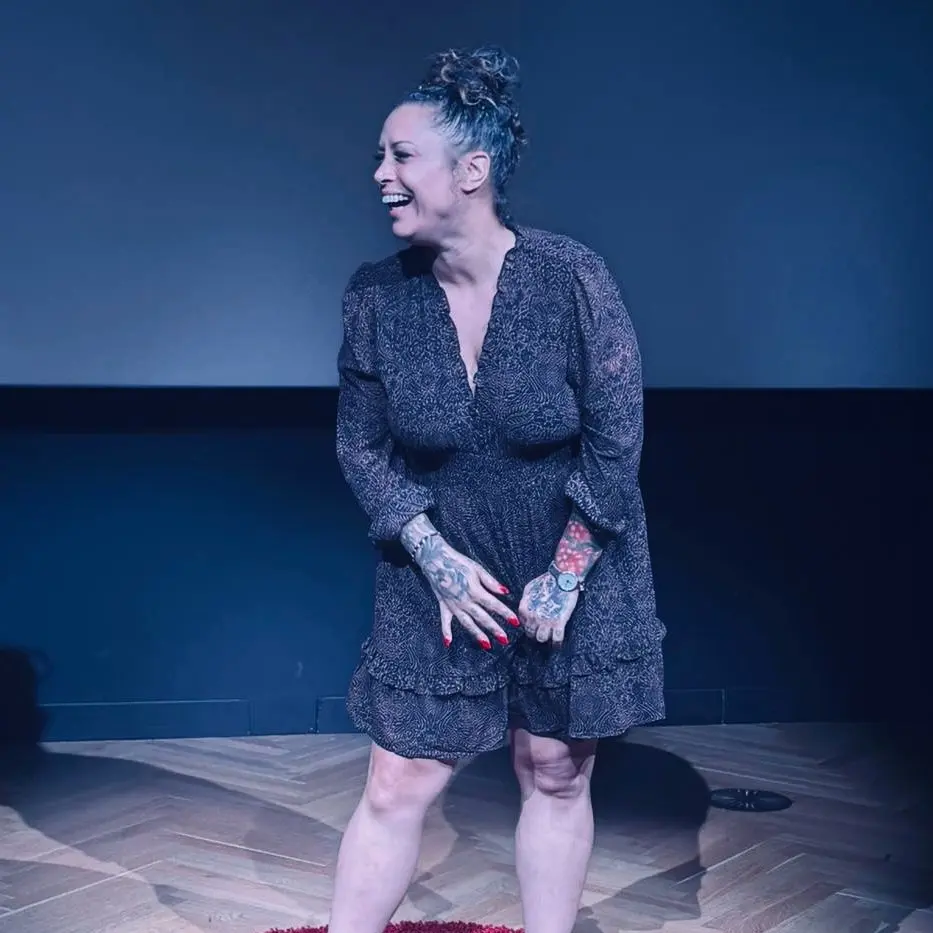
Living and leading with ADHD: Natalie’s story
Natalie Miller, our Deputy Regional Manager in Health in Justice, shares her journey with ADHD and bipolar disorder, and how openness and support have shaped her leadership.

Natalie Miller, our Deputy Regional Manager in Health in Justice, shares her journey with ADHD and bipolar disorder, and how openness and support have shaped her leadership.
October is ADHD Awareness Month.
At Practice Plus Group, we believe that when we recognise and support different ways of thinking, learning, and developing, we unlock innovation, build inclusion, and nurture wellbeing. We want every colleague to feel they can bring their whole self to work.
In that spirit, we spoke with Natalie Miller, Deputy Regional Manager for the West Midlands in our Health in Justice division. Natalie has spent almost a decade with the Health in Justice team at Practice Plus Group. Beyond her day-to-day role, she is a passionate advocate for mental health and neurodiversity, using her own experiences of bipolar disorder and ADHD to help others feel seen, understood, and supported.

Here’s Natalie’s story:
“I was only formally diagnosed with ADHD in January this year. Before that, I’d been living with a diagnosis of bipolar since 2017. That explained part of my experience, but not all of it.
A couple of years ago, someone mentioned in passing that some of my traits might be ADHD. I brushed it off. I thought, “I’ve been around ADHD, I know what that looks like, so that’s not me.” But later, when I started reading more and reflecting, things clicked. I realised there were patterns that suddenly made sense. So, I went through the assessment and was diagnosed.
Some of the things I struggle with might seem small to others, like forgetting tasks if they’re not written down; but to me, they are big. I joke about it sometimes, but actually it does bother me. I hate missing a deadline or forgetting something I have promised to do. I now use Microsoft Copilot to transcribe meetings and help keep track of actions. It’s been a game changer.
ADHD also affects my energy and emotions. I take medication and it helps, but there are days, when my mind won’t switch off and I go without proper sleep. On those days, it’s hard to balance my wellbeing with the responsibility of leading a team. What helps is open communication and a supportive network around me. I’ve learned to say, ‘Here’s what I need today.’
I began my Practice Plus Group journey in 2016 at HMP Brixton as a Band 6 nurse and I can honestly say the support I’ve had has been incredible. I was already here when I was first diagnosed with bipolar, and my manager at the time was very understanding and proactive. She didn’t just sign me off work. Instead, we found ways to keep me engaged and safe, such as adjusting my duties to suit how I was feeling.
Over time, I have had different managers, all flexible and kind. I work best in the mornings, so I plan my most important tasks early and wind down later in the day. I also have handover meetings before and after annual leave, so I don’t come back feeling overwhelmed. These small adjustments make a big difference.

I joined prison healthcare because I wanted to challenge barriers to care. Within a year I moved into a Deputy Head of Healthcare role, later becoming Head of Healthcare at another prison. In 2023, I became Deputy Regional Manager for the West Midlands, overseeing five prisons. It’s demanding work, but I’m proud of the balance I’ve found between structure, flexibility and impact.
Being neurodivergent definitely shapes how I lead. I plan carefully, think ahead, and I’m very aware of how my mind works. People with ADHD often see patterns others might miss and that can be a real strength in leadership. That’s something which I discovered.
At the same time, I am mindful of challenges like emotional regulation and decision fatigue but acknowledging them makes me a more empathetic and self-aware leader.
A few years ago, I posted on LinkedIn about having a bipolar disorder. That was the first time I had shared something deeply personal in a professional space and the response blew me away. People reached out to say it helped them feel seen. It created a ripple effect.
Since then, I have spoken openly about both bipolar and ADHD, including in a TEDx talk on the barriers to care in prisons. I believe, the more we talk about these things, the less stigma there is, and the easier it becomes for others to speak up too.
There are still misconceptions about ADHD. It’s not just being hyperactive or easily distracted. For many of us, it’s an invisible struggle. Simple changes, like leaving short breaks between meetings or offering flexible working, can make a big difference.
Practice Plus Group has given me the space to be myself, to explore what I need, and to find ways of working that play to my strengths. They’ve been patient, flexible, and supportive through both the hard days and the good ones.
For me, inclusion isn’t about labels or diagnoses. It is about asking, “What does this person need to do their best work?” At Practice Plus Group, that’s what we strive for every day. Our teams recognise that everyone thinks, learns and works differently, and that diversity is something to celebrate. The more openly we talk about it, the more we understand one another, and the more inclusive our workplaces become.
